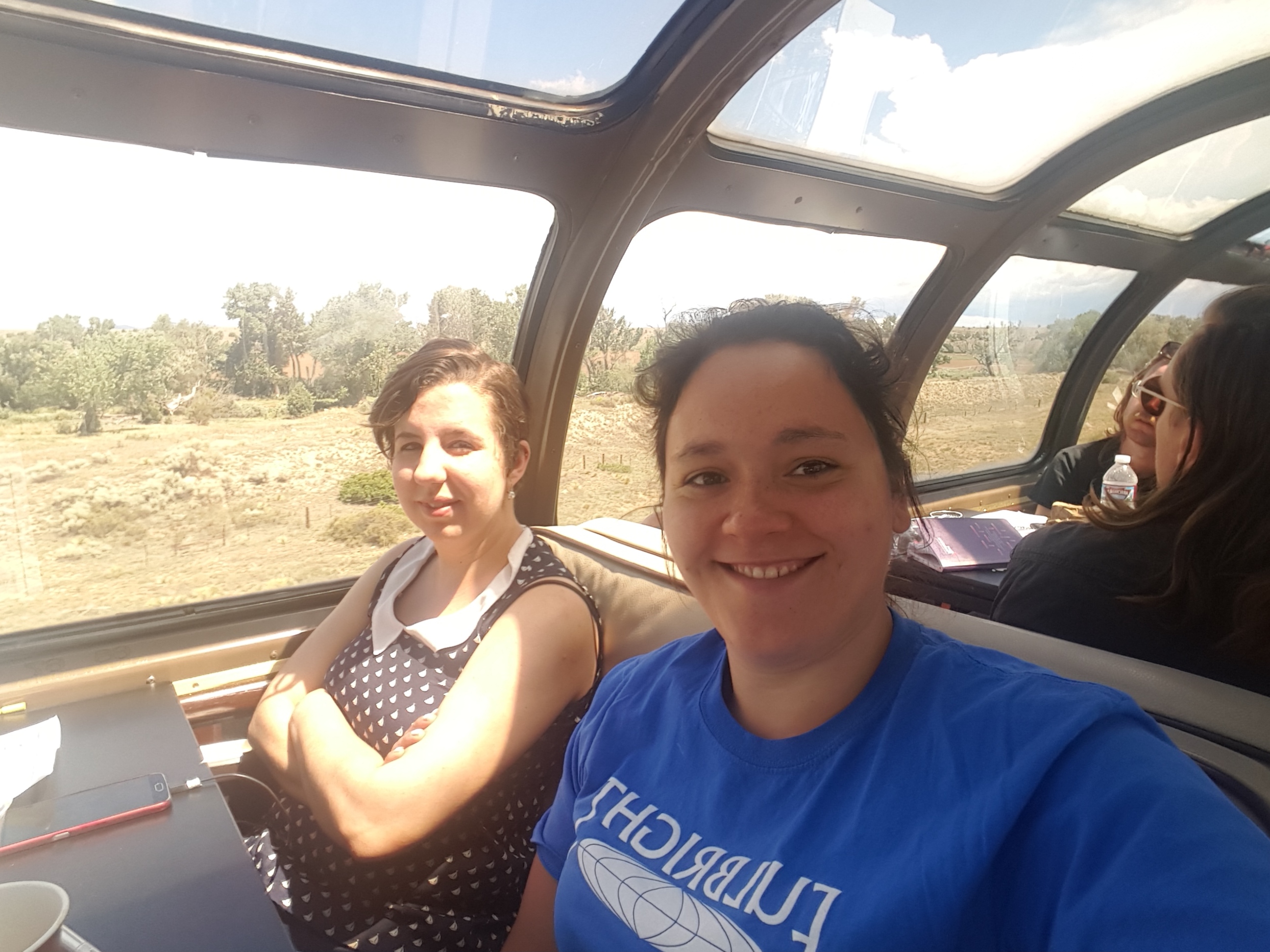
Fulbright MTP participant from Germany, Desiree Garcia, right, with fellow MTP participant, Leah Elizabeth Edwards, on Millennial Train Change Journey 2016.
Imagine walking around your city. All you see are evacuated stores falling apart, “for rent” signs dominating the view, yet knowing the chances for these spaces to be rented out are slim. Suddenly your memories take you back to a time when the stores were filled with people and all kinds of products. You remember how you, too, used to purchase your things here and you can still recall the smell and warmth of the stores, and the stories you were told by the store owners that were around for generations and knew the neighborhood and its people better than anyone. You find yourself smiling at that thought and then it hits you.
All this is no more. Main Street is dead.
Though I wished this was a fully fictional scene, I am sad to say that we are moving towards this quite quickly.
I live in Manhattan and while I noticed how certain stores (e.g. in retail) are having a tough time surviving, we still do have many small businesses in the city. So when I stepped onto the Millennial Train, I expected to find a similar situation in other cities:
Pittsburgh, PA – the former backbone of the U.S. construction economy with its steel industry, now with about 305,000 citizens left.
Chicago, IL – America’s third most populous city at 2.7 million residents, bustling as a technology and financial hub.
Kansas City, MO – a city that has been constantly increasing in population over the last decade with now 2.2 million citizens.
Albuquerque, NM – the most populated city in the poorest state of the United States with 550,000 citizens.
Los Angeles, CA – the center of the American entertainment industry and home to 4 million people.
Five cities that couldn’t be more different show a similar development: Small businesses are struggling and – shockingly – for the most part, many have closed. No matter who I talked to (potential customers, business owners, politicians), everyone confirmed that decreasing sales are the core accelerator of business closures. As an engineer and consultant, I know that this is influenced by two factors: (1) Decreasing prices and/or (2) Decreasing number of sold items, both of which are driven by one major force: Customers seeking to get the cheapest offer by supporting enormous companies such as Walmart or Amazon, not knowing that eventually they do pay more for it (e.g. US government pays about $6.2 billion a year for benefits to Walmart employees while the company made a net profit of $15 billion).
Please don’t get me wrong – I am not completely against big companies. In fact, I think we need them for different reasons, for instance to make larger investments in research that small businesses can’t afford. But I also think that big companies have a bigger responsibility that I don’t yet see them taking. And the same applies to the customers. We all need to rethink our routines. We need to acknowledge that we do have a power to change this situation and with that we have the responsibility to do so. I don’t want to ask anyone to purchase where they don’t want to, or to even tell them where to do their shopping. I just want people to THINK about the consequences of their behavior as customer – for every decision they make as such.
Embarking on this journey brought me closer to this understanding. And I will myself start making better decisions as a customer and will continue raising awareness of this important issue. But almost more importantly, being on the MTP train with all these amazing individuals, learning about different aspects of community and being mentored by professionals, inspired me to continue on this path and to care even more for the community I live in. And I truly hope that through reading this blog post, you too got the inspiration to do so. I dare you to try leaving your routine and make more intentional consumer decisions. And to inspire others in the process.


No Comments